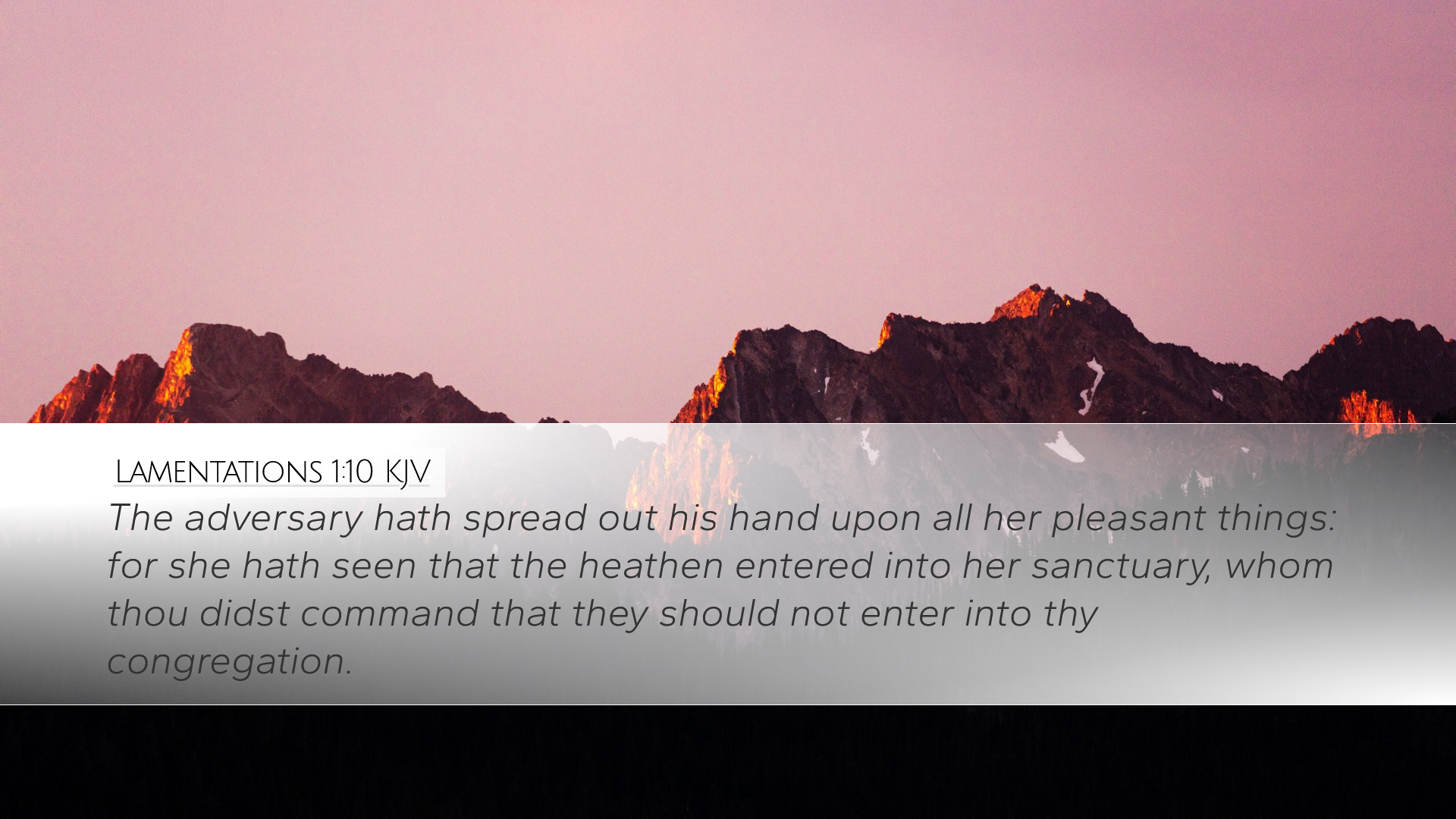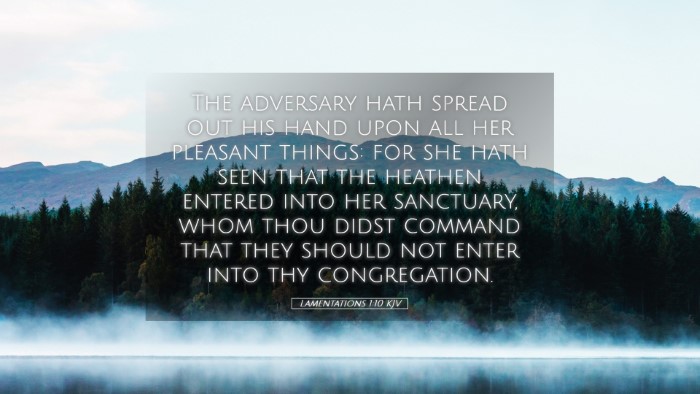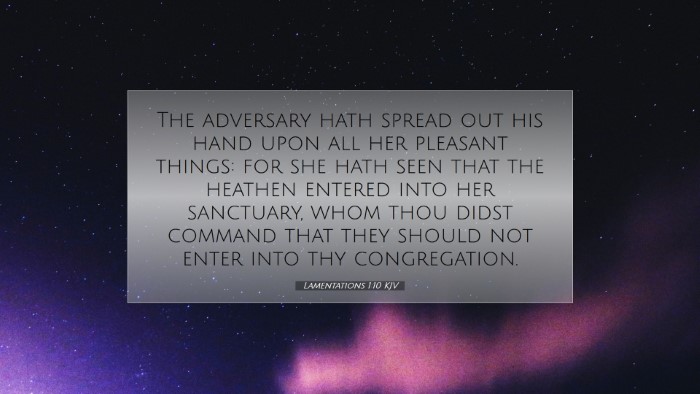Lamentations 1:10 - Commentary Summary
Verse Analysis: "The adversary hath spread out his hand upon all her pleasant things: for she hath seen that the heathen entered into her sanctuary, whom thou didst command that they should not enter into thy congregation."
This verse encapsulates the deep lamentation of Jerusalem as it reflects the desolation and the covenants that have been broken.
Introduction
The book of Lamentations presents a poignant view into the suffering of Jerusalem following its destruction. This specific verse highlights the invasion of the enemy into the sacred spaces and the accompanying loss of the city's former glory. Various public domain commentaries provide rich insights that enhance our understanding of this verse's theological implications.
Commentary Insights
Matthew Henry's Commentary
Key Themes:
- The Hand of Adversaries: Henry notes that the enemies of Israel have taken hold of what is precious, indicating a profound divine and national tragedy. Their aggressive occupation symbolizes the stripping away of both physical and spiritual sanctity.
- Sanctuary Desecrated: The entry of the heathen into the sanctuary represents a violation of the holy spaces that were reserved for the worship of Yahweh, epitomizing the abandonment of divine protection over Jerusalem.
- Vulnerability of God’s People: The verse reflects the vulnerability that comes when God’s people forsake His commandments and allow sin to take root, revealing the consequences of such spiritual negligence.
Albert Barnes' Notes
Examination of the Adversary:
- Symbolism of the Hand: Barnes elucidates that the hand of the foe signifies their power and reach over Jerusalem, signifying complete dominion over the city’s resources and treasures.
- Contrast of Pleasantries: The pleasant things that are referenced encompass both physical beauty and spiritual blessings that have now been lost due to divine judgment, emphasizing a stark contrast between past glories and present desolations.
- Heathen Intrusion: The command that the heathen should not enter into God's congregation reveals the seriousness of the defilement occurring within God's people. It underscores the sacredness of the divine assembly and the repercussions of allowing outside influences to corrupt it.
Adam Clarke's Commentary
Theological Reflective Points:
- Nature of Divine Judgment: Clarke discusses how this verse illustrates the active judgment of God upon His people, who have turned away from His statutes. The visible sign of judgment is the invasion of the sanctuary, indicating a withdrawal of divine favor.
- Consequences of Idolatry: The entry of the heathen into the sacred spaces serves as a tangible consequence of Israel's idolatry, reflecting how turning to foreign gods resulted in disgrace and vulnerability.
- Call to Repentance: Clarke calls the readers to recognize that even in their melancholic state, the remembrance of past sins should provoke a spirit of repentance and a return to God’s ways.
Theological Implications
This verse offers critical theology surrounding the nature of sin and the consequences associated with the abandonment of divine principles. It serves as a warning to future generations, especially within the context of contemporary church life.
- Sanctity of Worship: The desecration of the sacredness of worship spaces underscores the importance of maintaining purity in worship practices and guarding against worldly influences.
- Divine Protection: The verse reminds believers that God’s protection is contingent upon faithfulness and obedience to His commandments, suggesting that spiritual complacency may lead to vulnerability.
- Need for Vigilance: In times of ease and blessing, it is crucial to remain vigilant against complacency, ensuring that the Church does not allow secular ideologies to invade its doctrine and practices.
Conclusion
Lamentations 1:10 serves as a profound reminder of not only Israel's history but also a continuous call to the modern-day Church about the importance of remaining steadfast in faith. Through the insights of esteemed commentators like Matthew Henry, Albert Barnes, and Adam Clarke, the depth of lament embedded in this verse unveils a narrative that transcends time—encouraging reflection, repentance, and a return to the paths of righteousness.


